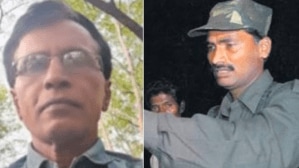History betrayed a beautiful nation
Over the last year, Afghanistan has figured on the front pages of the world media. This unprecedented attention has forced me to revisit mem...

Over the last year, Afghanistan has figured on the front pages of the world media. This unprecedented attention has forced me to revisit memories of my life that I had stored in one corner of my mind but very close to my heart. Scenes from my beautiful Kabul come back to me.
It is very sad to realise that most people are of the view that Afghanistan is nothing but a desert, divorced from civilisation, from education, from new technology. A place where all men are savage and all women oppressed. I have come across statements like, ‘Have you started wearing western clothes after you left Kabul?’ Or, ‘Are there modern houses in Kabul?’ These questions are so disappointing because they reveal an abysmal ignorance. After all, I was first taught about the importance of education in Kabul.
This disconnect led me to compare my own experiences of Afghanistan with people’s perceptions of the country. I am a woman, but an educated one. Not only did I do my schooling in Kabul, I made a lot of good friends, including male friends. I never thought that my beautiful country, with its friendly people, would one day be projected as one of the most evil and backward in the world. I have seen men and women working together in offices, sharing views and ideas. There were whole departments handled entirely by women, many of whom were ministers. Having spent my childhood there, I can vouch for the fact that I had the same freedom that one could have anywhere in the world.
I was also an eyewitness to Afghanistan’s turbulent history. Although too young to understand politics fully, I knew that it all started when Daood Khan, the prime minister of the country, established the Hezb Parcham, a Communist party. It led to Afghanistan’s destruction. With help from the Soviet Union, he went on to become the president. He was assassinated by the members of his party and the party took over, with Taraki as president. The people reacted strongly against this new government and popular anger led to the party dividing into the Hezb Khalq and Hezb Parcham factions. Taraki was killed by his foreign minister, Hfez-ullah-ameen, who became president. It was under his rule that Russian troops entered Kabul with Babrak Karmal, who went on to become the president. From that point on, life was a series of political disasters but for the people it went on as normal. There were late night parties, picnics, outings. People even got used to rocket attacks.
The world’s attention was drawn to Afghanistan under Taliban rule. It changed everything. We who were never ready to give up our freedom, our happiness, our ways of socialising, changed utterly under the Taliban. It was done through systematic fear and oppression. But, then, look at the Afghans today. The moment there was the chance of getting their freedom back, they seized it. Today, they are back, struggling to gain lost ground — in terms of development, education, career advancement. So why do people have a wrong perception about Afghanistan? The question still bothers me.






- 01
- 02
- 03
- 04
- 05

























